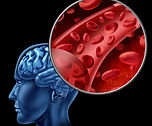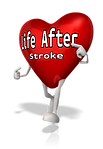St Mary's Hospital Stroke Rehabilitation Unit
Phoenix Park, Dublin, Ireland


Medication Management

Anticoagulants
Anticoagulant medication is prescribed to prevent blood clots forming and keep existing blood clots from becoming larger.
The most common medication used for the prevention of ischaemic stroke is a drug called Warfarin.
You may need Warfarin after your stroke if you were diagnosed with Atrial Fibrillation (otherwise known as an irregular heartbeat) or other conditions that may cause another stroke.
New medication developed similar to Warfarin is also used for stroke prevention. These medications are called NOAC (new oral anticoagulants).
Examples include Apixaban, Endoxaban, Rivaroxaban, Debigatran.
Your Doctor will prescribe the most appropriate medication for you.
Following a stroke your Doctor may prescribe new medication in order to prevent another stroke occurring. Medication may be prescribed to prevent blood clots, lower cholesterol or to decrease blood pressure. This is because blood clots, high cholesterol and high blood pressure are risk factors for having another stroke.
Antiplatelet Medication
Antiplatelet medication plays an important role in keeping platelets from your blood from sticking together.
The commonly antiplatelet drug prescribed to prevent another strokes is Aspirin.
If you had a haemorrhagic stroke Aspirin is not recommended.
Other antiplatelet medications include: Clopidogrel (Plavix) - this drug may be used for individual who cannot take Aspirin Dipyridamole (Agrenox) - is an alternative to Aspirin.
You must be careful when taking antiplatelet medication. They can increase your risk of bleeding if have a minor cut or have a fall.

Antihypertensive Medication
Blood pressure reduction is recommended for prevention of other stroke.
A normal blood pressure level is 120/80 mmHg.
If your blood pressure is higher than 140/90 it is called hypertension and you are at risk of having another stroke if it is not treated.
If your blood pressure cannot be managed with the lifestyle modification - such as salt restriction, weight loss, consumption of a diet rich in fruits, vegetables and low fat dairy products , regular physical activities and limited alcohol consumption your Doctor will prescribe medication to reduce your blood pressure.
There are many antihypertensive drugs which your Doctor can use. It is important you know the drugs you are prescribed.
Examples include:-
-
ACE (angiotensin-converting enzyme) inhibitors such as: Benazepril, Captopril, Enalapril, Ramipril, and Lisinopril
-
Beta blockers- Atenolol, Carvedilol, Metoprolol, Propanolol
-
Diuretics - also known as water pills – Lasix, Aldactone

Statins
Statins are medications used to lower cholesterol and reduce the risk of having another stroke.
Statins also have anti-inflammatory properties as well to reduce the inflammation around cholesterol build up.
Some example of statins include:
-
Atorvastatin (Lipitor)
-
Rosuvastatin (Crestor)
-
Pravastatin (Pravachol) and
-
Simvastatin (Zocor)
It is important for you to be aware of the side effects of statins eg muscular aches, increase the risk of diabetes. Frequent blood checks are requested by your doctor can monitor this for you.

Antidepressents
After a stroke you may experience changes in your mood.
These may include anger, frustration, anxiety, shock and depression.
It is important you talk to your doctor if you experience any of these changes.
If necessary he may prescribe some medication in addition to advising you and your family to seek additional support - visit this web site

